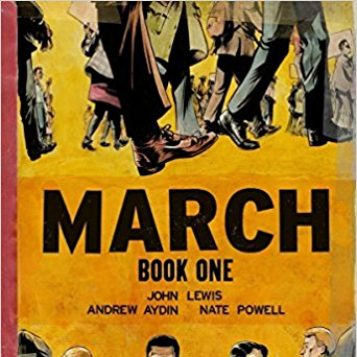-
- Bad Feminist: Essays
- Between the World and Me
- Boy Erased: A Memoir of Identity, Faith, and Family
- Evicted: Poverty and Profit in the American City
- Exile and Pride: Disability, Queerness, and Liberation
- How to Be a Muslim: An American Story
- March: Books One, Two, and Three
- Queer: A Graphic History
- So You Want to Talk About Race
- The Far Away Brothers: Two Young Migrants and the Making of an American Life
- Waking Up White, and Finding Myself in the Story of Race
- We Should All Be Feminists
- Whistling Vivaldi: How Stereotypes Affect Us & What We Can Do
- 2025
- 2019
- 2018
- 2017
- 2016
- 2015
- 2014
- 2013
- 2012
- 2011
- 2010
- 2009
- 2008
- 2007
- 2006
- 2004
- 2005
- 2003
- 2002
- 2001
- 2000
- 1999
- 1998
- 1997
- 1996
- 1994
- 1995
- 1993
- 1992
- 1991
- 1990
- 1989
- 1988
- 1986
- 1985
- 1984
- 1983
- 1980
- 1979
- 1975
- 1973
- 1972
- 1982
- 1968
March: Books One, Two, and Three
John Lewis, Andrew Aydin, and Nate Powell
Race
March is a vivid first-hand account of John Lewis' lifelong struggle for civil and human rights, meditating in the modern age on the distance traveled since the days of Jim Crow and segregation. Rooted in Lewis' personal story, it also reflects on the highs and lows of the broader civil rights movement.
Congressman John Lewis (GA-5) is an American icon, one of the key figures of the civil rights movement. His commitment to justice and nonviolence has taken him from an Alabama sharecropper's farm to the halls of Congress, from a segregated schoolroom to the 1963 March on Washington, and from receiving beatings from state troopers to receiving the Medal of Freedom from the first African-American president.


